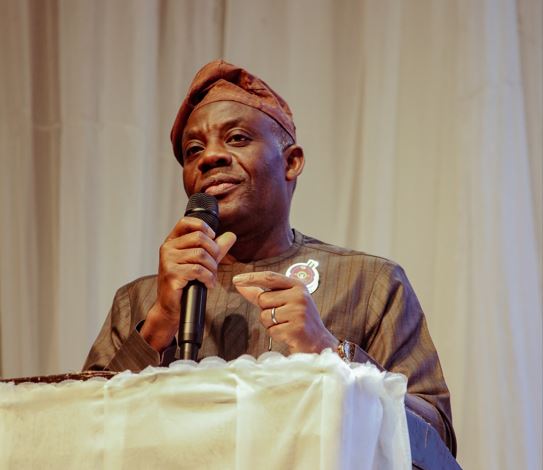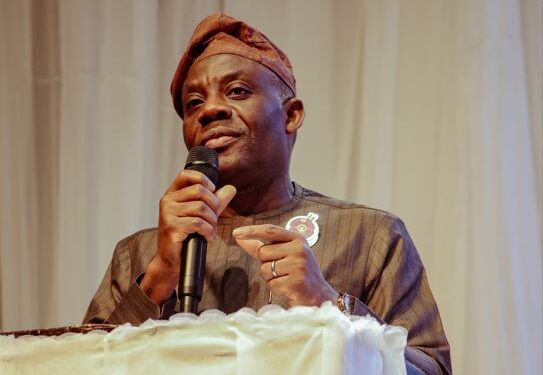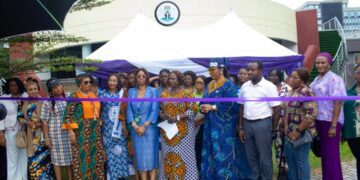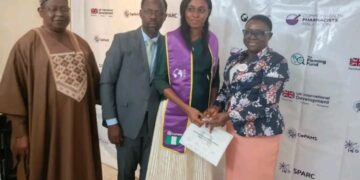In a significant appeal aimed at labor unions within Nigeria’s educational sector, the Minister of Education, Dr. Tunji Alausa, has called upon organizations such as the Academic Staff Union of Universities (ASUU) and the Senior Staff Association of Nigerian Universities (SSANU) to place the welfare and education of students above the pursuit of strikes. This plea was made during the opening of the 359th Quadrennial National Delegates Conference of SSANU, held in Abuja on Wednesday.
Dr. Alausa emphasized that industrial action should not be the primary method for unions to seek government attention regarding their demands. He acknowledged the frustrations that union members have faced due to past unfulfilled government agreements but assured them that the current administration, led by President Bola Tinubu, is genuinely committed to fulfilling its promises.
In his remarks, Alausa noted, “Honestly, I know you as an association, ASUU, NASU, everybody collectively, your psyche has been affected, because the government has gone into agreements with you, and most of the time, the government has not fulfilled its part of the agreement.” He reiterated President Tinubu’s dedication to making difficult, long-term decisions for the betterment of the nation’s educational landscape.
The minister reflected on the historical context of Nigeria’s challenges in honoring agreements with educational unions, suggesting that if tougher decisions had been made in the past, the current situation might have been different. “When the President was campaigning around the country, he told Nigeria, ‘I’ll be honest with you, I’ll take the difficult decision.’ And I wish today that these difficult decisions were made 10, 20, 30 years ago,” he said.
Dr. Alausa, who has recently taken on his role as Minister of Education, also addressed the financial challenges that have hindered the government’s ability to meet union demands. He pointed to the previous administration’s excessive expenditures on subsidies and the implications of artificially low exchange rates, which he argued drained national resources and primarily benefited the wealthiest citizens. “The subsidies cost Nigeria almost $1 billion daily, while artificially supporting the exchange rate costs an additional $500 million monthly. These policies were unsustainable and took resources away from critical sectors like education,” he explained.
In an effort to foster collaboration, the minister urged educational unions to give the government the benefit of the doubt and to engage in respectful negotiations. He announced the formation of a committee led by respected figures, including Alhaji Yahaya Ahmed, a former Head of the Service, to facilitate discussions with the unions.
Dr. Alausa concluded his address with a strong call for unity in prioritizing the future of Nigerian children, urging all stakeholders to work together to keep students in school. “This administration is committed to listening and collaborating. Let us prioritize the future of our children and work together to keep them in school,” he stated.
Further addressing the conference, former president of the Nigeria Labour Congress, Ayuba Wabba, echoed the sentiments of frustration among labor unions regarding the repeated breaches of collective agreements. Wabba highlighted that the failure to honor these agreements has been a significant catalyst for strikes and labor unrest in Nigeria. He referenced the severe economic consequences of strikes, particularly during the 2012 petroleum subsidy protests.
Wabba advocated for reforms aimed at improving the collective bargaining system, emphasizing the necessity for trust and transparency from both the government and the unions. He proposed the establishment of a formal structure similar to South Africa’s Labour Council, where quarterly meetings between union representatives and government officials would encourage ongoing dialogue and proactive issue resolution.
In addition, Mohammed Ibrahim, the National President of SSANU, called for a reevaluation of the narrative surrounding strikes and industrial relations. He criticized the perception of unions as being excessively eager to strike, stating that this perception overshadows the genuine issues at play. Ibrahim asserted that the theme of the conference, “Respecting Collective Bargaining Agreements and Industrial Peace in a Democracy,” underscores SSANU’s commitment to maintaining industrial peace.
He further noted, “The experiences in the last year for the Nigerian worker, especially members of SSANU, have been particularly nasty and brutish.” Ibrahim pointed out that the ongoing issues within the educational system are largely due to the breakdown of agreements between unions and employers, leading to increased industrial tensions and strikes.

The discussions at this conference reflect the ongoing challenges facing Nigeria’s educational sector and the pressing need for collaborative solutions to ensure that the welfare of students remains the top priority. As the dialogue continues, stakeholders hope for a renewed commitment to fulfilling agreements and fostering a conducive environment for education in Nigeria.
Post Views: 367









